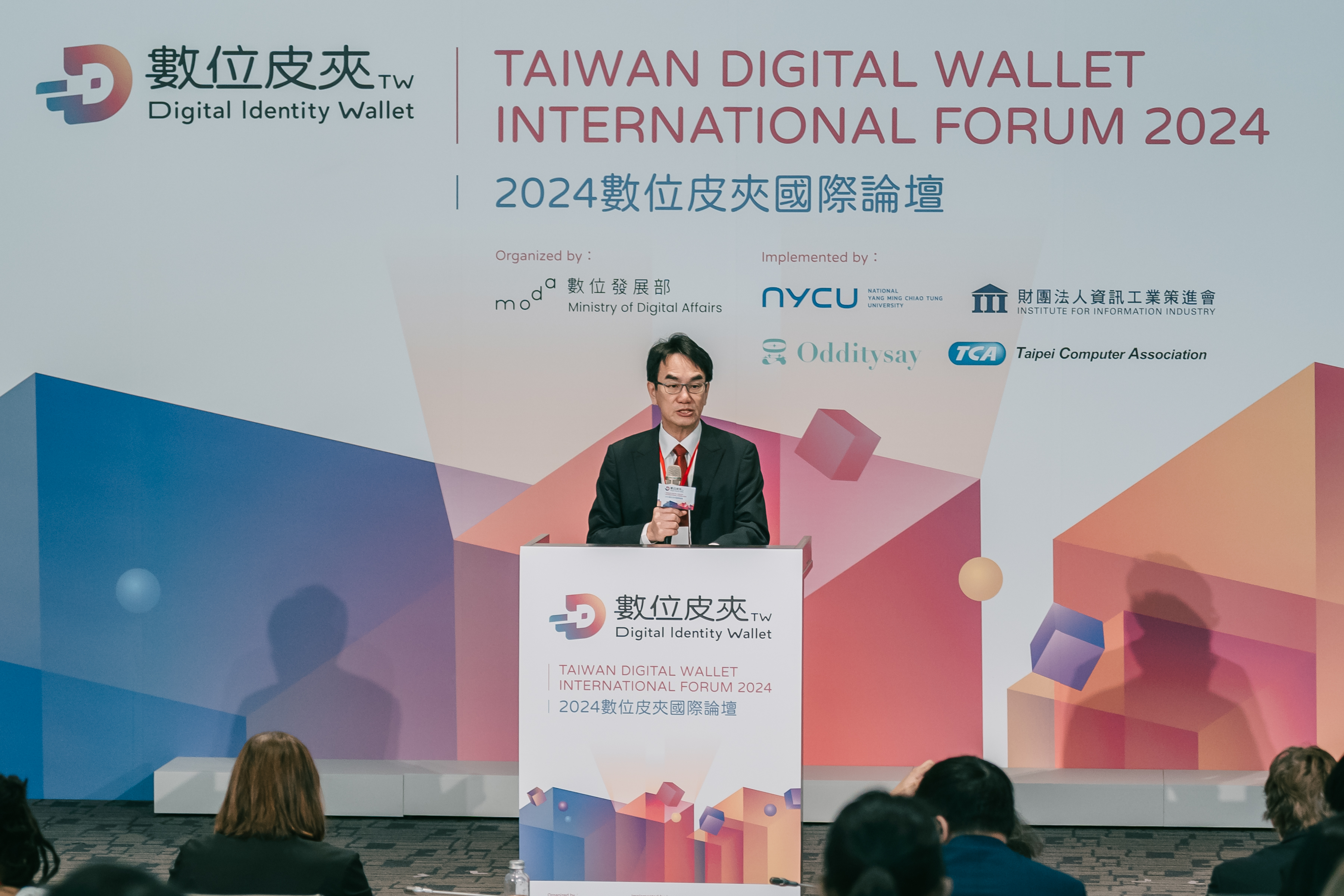2024 Digital Wallet International Forum Explores Cross-Border Digital Identity Trust Mechanisms
As digital identity technology progressively moves from centralized and federated systems toward decentralized models, digital wallets have become a next-generation digital public infrastructure. The Ministry of Digital Affairs (the MODA) hosted the 2024 Digital Wallet International Forum on December 11, inviting Digital Self Labs, Electronic Frontier Foundation, FIDO, Google, OpenID, Digital Trust Association in Taiwan, Open Culture Foundation, Industrial Technology Research Institute, National Yang Ming Chiao Tung University, Chungwa Telecom, and Taiwan-Ca Inc. to delve into global applications of digital credentials and verification standards, leveraging privacy protection and user convenience. The forum also explored the development of verifiable credentials and decentralized identification technologies to construct a trustworthy digital ecosystem.
Deputy Minister Yi-Jing Lin emphasized three key points about digital credentials: Digital credentials are the cornerstone of a digital society, they protect personal data with selective disclosure, and the Interoperability of Digital credentials is increasing. As the world rapidly advances toward comprehensive digitalization, digital wallets are set to play a pivotal role in this transformation.
The forum’s first keynote invited Naohiro Fujie, chairman of OpenID Foundation Japan, to share Japan’s experiences and challenges in digital credential and identity interoperability, paving pathways to mature digital ecosystem development through cross-departmental collaboration. Experts like Digital Trust Association Chair Ting-Yi Chan, Google’s Payment Partner Development Manager for Singapore and Greater China Amber Zhong, and Digital Self Labs Founder Linda Jeng also shared thoughts on breaking existing frameworks and constructing cross-domain digital wallet ecosystems based on their observation of international best practices.
Digital identity pioneer Markus Sabadello focused on explaining the European Digital Identity Wallet (EUDI Wallet)’s objectives, progress, and current achievements while exploring self-sovereignty’s philosophical and ideological values and meanings, providing participants with a rich international perspective. Experts from Chungwa Telecom, National Yang Ming Chiao Tung University, and DreamVok shared practical experiences in Taiwan’s digital wallet hardware construction, verification linking, and extended service scenarios. They also analyzed recent citizen deliberation results, offering valuable insights into future policy directions.
Electronic Frontier Foundation’s Information Engineering Director Alexis Hancock and Open Culture Foundation Executive Director Shin-Ying Lee focused on anti-tracking technologies and privacy protection aspects of digital footprints. They discussed how to enhance transparency in information disclosure and technical applications while effectively protecting user data and privacy. Deputy General Director Wei-Chung Hwang from ITRI’s Information and Communications Research Laboratories, Gogolook Co-founder and CEO Chien-Fu Kuo, FIDO Taiwan Chapter President Hsin-Ling Chang, and Taiwan-Ca Inc’s Strategy Director Hung-Yi Tu discussed digital wallets’ potential in cross-domain collaboration, cross-border interoperability, and multi-domain applications. They shared innovations and challenges in digital wallet development and identity verification, providing participants with diverse perspectives and practical references.
MODA stated that the forum successfully facilitated cross-domain collaboration and the exchange of ideas. Looking forward, MODA will continue to deepen policy promotion and build a secure, trustworthy, and interoperable digital economic ecosystem with all sectors.


